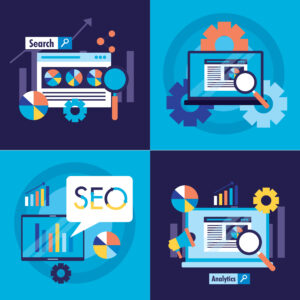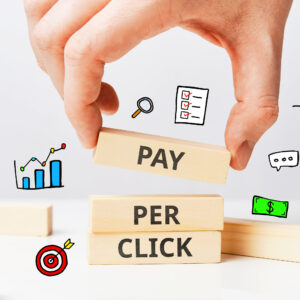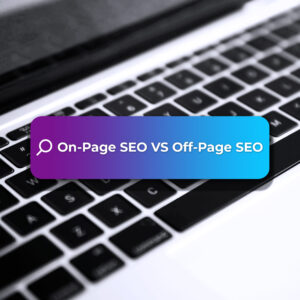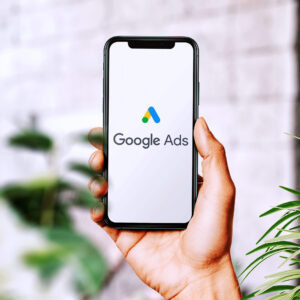Most modern businesses conduct the lion’s share of their marketing and advertising in the digital sphere. People are on their phones, tablets, and laptops throughout the day, so it makes sense to advertise where they are likely to be paying attention. Pay-per-click advertisements are a low-cost way to reach your audience where they already spend their time. Pay-per-click (PPC) is a form of paid digital advertising that you can use to increase awareness of your brand and to boost your sales. An effective PPC ad strategy takes some understanding and planning. We’ll help get you started. Here’s what you should know about PPC advertising and how to use it.

Pay-per-click advertising is one of the most used and, in most cases, most affordable types of paid search advertising available to the average business. It doesn’t take the place of your organic search efforts but should work alongside them to help you achieve optimal results.
PPC involves paying a fee when someone clicks on your ad. The name really means what it says! Many businesses love this type of advertisement because they only pay for actual engagement, rather than paying just to display the ad the way they would for a billboard.
When you create an ad to promote your business, you want to make sure that you get the best “bang for your buck” or return on investment. PPC is a great way to achieve this goal.
Here’s the breakdown on how this works:
From here, the advertising platform takes care of the rest. Your ad goes into a “lottery” or “auction” where it competes with other ads that are using or “bidding on” the same keywords. Finally, when your ad appears in front of your audience, you only pay if they click. Using this tool as a part of your overall marketing strategy can offer big payoffs in the long run, especially if your ads and your products really resonate with your audience.
You may be wondering what happens when your ad is chosen to be portrayed. When you advertise through Google or Bing Ads, your ads are shown on a search engine results page (SERP).
PPC ads are going to be displayed on the SERP along with additional organic results that match the user’s search terms. They will always be marked with the word “Ad” or “Sponsored” next to them, to notify the user that they are a paid advertisement.
PPC advertising can’t guarantee that your ad will be shown to every user searching online for items like what you’re selling, but it does increase the chances that your ad will appear at the top of the SERP.
PPC advertising takes time and some cash to kick off, but it is a worthwhile investment.
- Simple and affordable advertising efforts. Once the initial market research and ad creation are taken care of, PPC is straightforward and usually has a pretty good return for your efforts. It is estimated that, for every $1 spent, PPC ads will provide $2 in revenue.
- Unclicked ads won’t cost you: This may be every business’s favorite part. While you would have to pay to display most ads, PPC advertising allows you to only pay if people click on the ad.
- Clicked PPC ads are far more likely to yield conversions. PPC ads only show up when an individual looks for a keyword that is related to them. Since they are already searching for information, products, or services that you are offering, then they are exponentially more likely to click on that ad because they are interested in what you have.
- You can learn more about your target audience. The information you gather from ads that do and don’t work, plus the actions that someone takes after they click on your ad, can help you better understand target audience and guide your marketing strategy in the future.
- Results are easy to track and measure. You can clearly see which ads people click on the most and how they perform, making it easy to track return on investment and make adjustments that improve the performance of your ads.
The effectiveness of PPC ads will vary. The best result you can get is for people to click on them and then follow through on making a purchase. Here are some tips to help you create ads that catch the right audience’s attention.
PPC ads are most effective when they use keywords that reach your target audience as accurately as possible. Your keywords need to match what the ad is promoting and be geared to grab the attention of someone who is interested in what you have to offer.
Who are you advertising to? Make sure you consider what your target customer may be looking for. Keeping your audience in mind makes it easier to create ads that directly address their questions, wants, needs, and show how your products or services provide a solution.
Make sure that any PPC ad you publish is linked to a well-crafted, compelling page that provides relevant information in a convenient and easy to understand way.
If you are trying to keep things local, set up your PPC ads to target local keywords. If you are marketing to a larger region, use the same approach but target a range of keywords commonly searched for in that region.
Negative keywords are words and phrases you DON’T want your ad to show up for. Using them helps you minimize funds lost on ads clicked that don’t yield the information the end user is looking for. For example, setting up negative keywords like “cheap” or “low-cost” can prevent frugal shoppers from finding your couture vintage furniture storefront.
Make PPC easier by working with marketing experts who know how to make your ads as effective as possible. Reach out to us to discuss your PPC management strategy and see how we can get your ads the attention they deserve.









